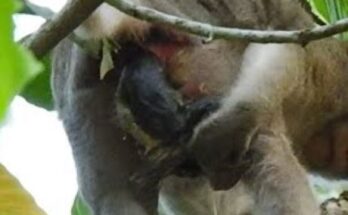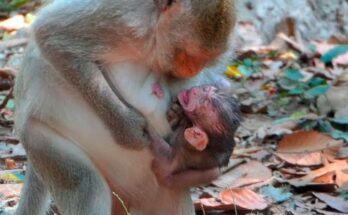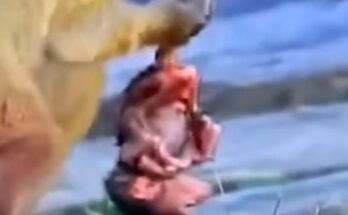In the animal kingdom, the behavior of mother monkeys rejecting their babies can be puzzling and heartbreaking. Such instances are not uncommon, and they occur for various reasons, rooted in the mother’s health, the baby’s condition, or environmental stresses.
Maternal rejection often happens when a mother perceives her baby as weak or ill. Monkeys, like many animals, have an instinct to invest their energy and resources in offspring with the best chance of survival. If a baby is born with physical deformities, developmental issues, or signs of illness, the mother may instinctively reject it to focus on future reproduction or caring for healthier offspring.
Another reason for rejection could be stress or inexperience in the mother. First-time monkey mothers may lack maternal instincts or experience, leading them to reject their baby simply because they do not understand how to care for it. High-stress environments, such as those with limited food, overcrowding, or threats from predators, can also cause maternal neglect. Stress may overwhelm the mother, making her unable to care for her baby adequately.
Lack of bonding during the initial moments after birth can also lead to rejection. In many species, the bond between mother and baby begins immediately after birth through touch, grooming, or nursing. If this bonding process is interrupted—for example, if the baby is separated from the mother shortly after birth—the mother may fail to recognize the baby as her own.
Additionally, hormonal imbalances can affect maternal behavior. Hormones like oxytocin play a crucial role in stimulating maternal instincts and bonding. If a mother monkey experiences hormonal disruptions due to health issues or complications during childbirth, she might not exhibit typical nurturing behavior.
From the baby’s perspective, rejection is life-threatening, as the mother is the primary source of food and protection. When a mother refuses to nurse her baby, the infant faces starvation and vulnerability to predators or environmental dangers.
Intervention by human caregivers or wildlife specialists can sometimes save rejected baby monkeys. They may hand-rear the infant or facilitate reintroduction to the mother in a controlled setting. However, the success of such interventions varies depending on the circumstances.
Understanding and addressing maternal rejection in monkeys involves recognizing the delicate interplay of biological, environmental, and social factors. It serves as a reminder of the challenges and complexities of survival in the wild.
4o


